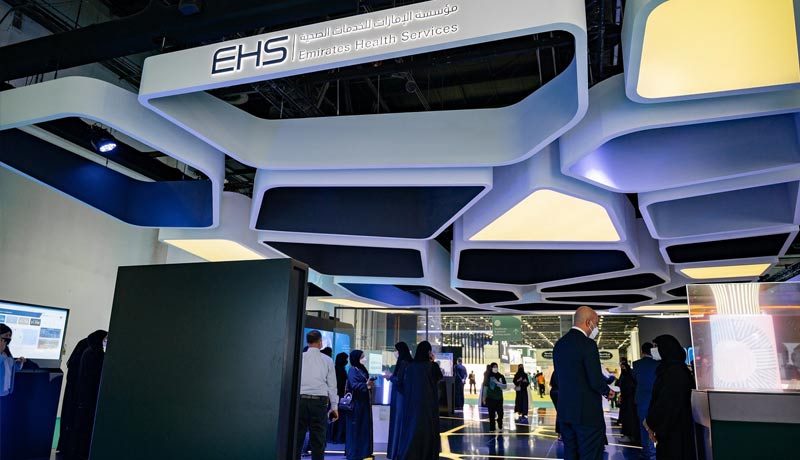
On the second day of Arab Health 2022, where EHS is participating under the tagline “A Renewed Vision for the Health of the Emirates,” Emirates Health Services (EHS) announced a range of groundbreaking artificial intelligence (AI)-based projects.
New approaches for “Diagnosing Autism in Children Using Artificial Intelligence,” “Diagnosing Dementia Using Artificial Intelligence,” and “Using Assistive Technology and Augmentative Communication Devices” are among the newly released techniques. Visitors will be able to learn more about the projects at the EHS booth at the exhibition, which has one of the largest platforms of the event, with four main sections: A Healthy Community, Wellbeing, Innovative Treatment Services, and Digital Health.

Dr. Noor Al Muhairi, Director of the Mental Health Department at Emirates Health Services, said: “Emirates Health Services is committed to keeping up with the times and adapting to the rapid developments of our era, where individual preferences and requirements are becoming more complex and the public’s appetite for services based on digital reality, artificial intelligence, and 3D services is growing. With that in mind, EHS is channelling its efforts towards strengthening its health ecosystem, launching innovative projects to enhance smart services and maintain the UAE’s regional and global lead on performance indicators”.
The “Diagnosing Autism in Children Using Artificial Intelligence” initiative was presented by Emirates Health Services in collaboration with the Children’s Hospital of Philadelphia (CHOP)Centre for Autism Research, which had developed the Sensor Tree as a diagnostic, instructional, and research tool. To determine whether a participant has autism, the biosensor records everything they say and do in perfect synchronisation with up to 90% accuracy.
The “Diagnosing Dementia Using Artificial Intelligence” project – an Integrated Cognitive Assessment Technology that is CE marked, MHRA registered, and FDA Class II medical device – was also introduced to attendees at the show by EHS. The research consists of a five-minute, software-based, computerised cognitive assessment tool that employs artificial intelligence (AI) to compare ICA tests previously completed by both healthy and cognitively impaired people. As a result, the ICA is able to deliver objective data.
Last but not least, in collaboration with Maudsley Health, EHS introduced the “Using Assistive Technology and Augmentative Communication Devices” project. The project uses Assistive Technology and integrated software and hardware Augmentative and Alternative Communication (“AAC”) to provide solutions for people with aphasia, autism, Parkinson’s disease, Cerebral Palsy, spinal cord injuries, and other medical conditions that affect their ability to communicate (e.g., aphasia, autism, Parkinson’s disease, Cerebral Palsy, and others).